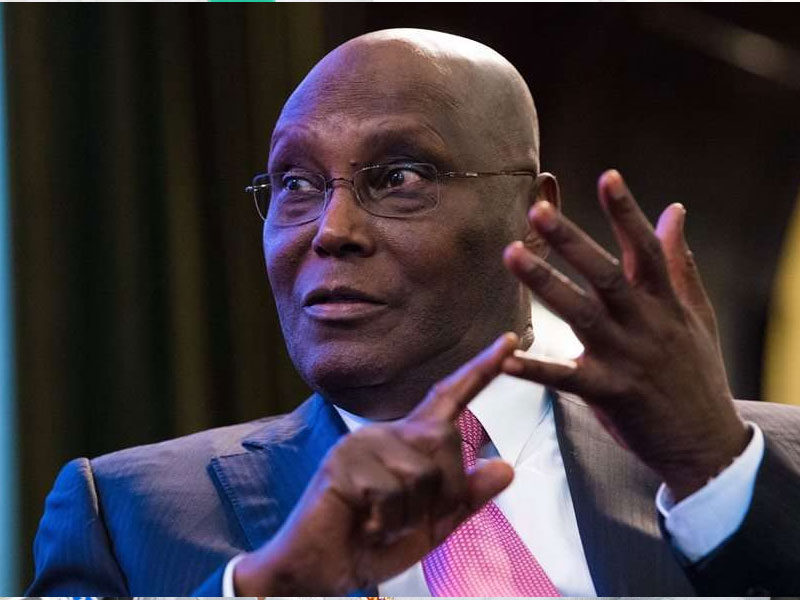People’s Democratic Party (PDP) presidential candidate Atiku Abubakar, has revealed that Nigeria’s economy is in worse shape than the All Progressives Congress (APC)-led administration is ready to acknowledge.
In a statement, the former vice president argued that taking on more loans will never solve Nigeria’s debt problem, noting that such decision would only worsen the country’s debt issues
The former president bemoaned the fact that the level of suffering among the populace remained unchanged under President Muhammadu Buhari’s APC.
The statement partly read, “Also, debt levels continue to rise while the fiscal capacity to service its debts is declining. All these are enough to erase the perceived gains from output growth.
“Having run out of ideas, it appears that our unprecedented level of indebtedness is whetting the government’s appetite for more debt. This is a recipe for macroeconomic instability.
READ ALSO: Atiku will appoint APC, members of other parties into his govt—if he wins
“We challenge the National Bureau of Statistics to share with the public their recent statistics on poverty, unemployment and commodity prices — the reality of which will leave no hope for the common man.
“Like I have said before, increasing debts will never be a solution to our indebtedness. My government, if elected, will halt the rate of debt accumulation and instead focus on private-public partnerships in financing development.”
According to a study by the Debt Management Office, Nigeria’s overall debt stock increased by N2.05 trillion from the N39.56 trillion recorded as of December last year to N41.6 trillion in the first quarter of 2022. Nigeria’s total debt increased to $100.1 billion in dollars.
In a similar vein, Nigeria’s debt-to-GDP ratio increased from 22.47% in December 2022 to 23.27% in the first quarter of 2019. Even while this is below the 40% self-imposed ceiling, the rate is increasing more quickly as a result of higher borrowing and moderate economic growth.

 Health & Fitness4 days ago
Health & Fitness4 days ago
 Featured1 week ago
Featured1 week ago
 Aviation6 days ago
Aviation6 days ago
 Aviation5 days ago
Aviation5 days ago
 Aviation5 days ago
Aviation5 days ago
 Business1 week ago
Business1 week ago
 Business1 week ago
Business1 week ago
 News1 week ago
News1 week ago

